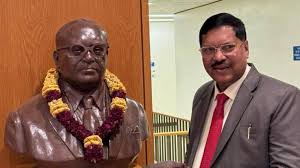Last Updated on March 30, 2024 by News Desk
Justice Gavai discussed the role of judicial review in shaping policy in India, emphasising the judiciary’s efforts to uphold constitutional ideals when the executive branch fails to fulfil its duties. He emphasised the importance of administrative authorities acting judicially, as the court may scrutinise the validity and constitutionality of decisions made by the executive.
In India, judicial review has evolved new constitutional mechanisms to ensure the Constitution works as a “living document” that adapts to the changing needs and desires of future generations.
Public Interest Litigation (PIL) is an example of a novel mechanism developed by the judiciary to uphold citizen’s rights and level-playing policies. PIL allows public-spirited citizens to approach the court for grievances of marginalised sections of society who cannot approach the court due to their social and economic disadvantages.
Judicial review allows the judiciary to assess the decisions and actions taken by government officials and bodies, ensuring they align with the constitution and do not negatively impact the populace. The primary objective of this process is to ensure that these rulings are in harmony with the constitution and do not negatively impact the populace.
Dialogical judicial review involves a conversational process between the judiciary, the government, and those impacted by governmental actions. This dialogue acts as a means between the parties, enabling them to correct their decision and helps the courts ensure transparency and accountability.
During the COVID-19 health crisis, the judiciary’s involvement led to the modification of policies for the enhanced protection of civil liberties. The Supreme Court engaged in a dialogue with the Union government, allowing them to explain the reasons behind their actions while observing due deference.
The Court’s mission extends beyond just interpreting the language of the law in a vacuum and striking down legislation or administrative activities that are inconsistent with the Constitution.





















